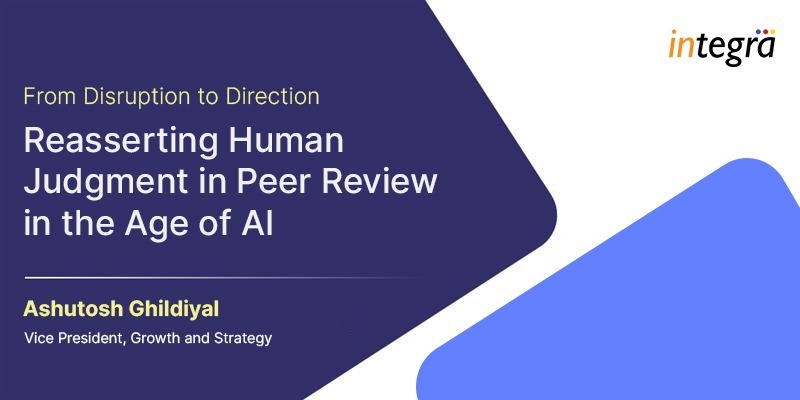Enhancing Educational Strategies: The Role of Data Analytics in Elevating Student Learning Outcomes

In an era where technology and data intersect with every facet of our lives, the educational sector stands at a pivotal crossroads. The incorporation of data analytics in education is not merely an advancement; it’s a revolution that redefines the traditional paradigms of teaching and learning. Research has shown that using data in instructional decisions can lead to improved student performance (Wayman, 2005; Wayman, Cho, & Johnston, 2007; Wohlstetter, Datnow, & Park, 2008). This exploration is dedicated to illuminating how educators, by embracing data analytics, can transform the educational landscape, elevating student learning outcomes to unprecedented heights. Through this nuanced lens, we’ll delve into the intricate ways in which data analytics serves not just as a tool, but as a catalyst for educational innovation and excellence.
The Landscape of Data Analytics in Modern Education
The integration of data analytics in modern education is more than a technological trend; it’s a pivotal shift that is reshaping how educators and institutions approach teaching and learning. This evolution is driven by the deployment of diverse analytics tools, ranging from Learning Management Systems (LMS) like Moodle to AI powered LMS like the SkillPilot.
These tools are revolutionizing the educational experience by enabling a data-driven approach. Educators can now track and analyze student engagement, participation trends, and performance metrics with a level of precision previously unattainable. This data is invaluable in tailoring teaching methods to enhance interaction and inclusivity within the learning environment.
Beyond classroom applications, data analytics is also instrumental at the institutional level. It aids administrators in strategic decision-making, from optimizing resource allocation to refining academic programs to better align with market demands.
The advent of artificial intelligence (AI) and machine learning in this field is further magnifying its potential. By incorporating these technologies, educators can develop predictive models to identify academic risks and opportunities early, allowing for proactive intervention and personalized learning paths.
In essence, the landscape of data analytics in education is a dynamic one, continually evolving to unlock new possibilities for educational research, pedagogical innovation, and student empowerment. Its ongoing integration into the educational sector promises a future of enhanced teaching and learning experiences.
Identifying Key Metrics: What Data Should Educators Focus On?
When it comes to leveraging data analytics in education, the strategic selection and application of metrics is crucial. Institutions must align their data collection and analysis with their specific goals, ensuring that their systems are tailored to meet these objectives effectively. One comprehensive approach to framing this analysis is through Khan’s Learning Framework.
Developed by Badrul Khan in 2001 and refined in 2005, this framework offers a multi-dimensional lens for understanding the role of data analytics in education, particularly within higher education contexts. The framework comprises eight key dimensions: pedagogical, technological, interface design, evaluation, management, resource support, ethical, and institutional. Each dimension provides a unique perspective on the implementation and impact of data analytics in educational settings.
- Pedagogical: This dimension focuses on the educational strategies and teaching methodologies that data analytics can enhance. It involves analyzing data to understand and improve the learning process, tailoring educational content and delivery to student needs.
- Technological: Here, the emphasis is on the tools and platforms used for data analytics. It involves assessing the suitability, efficiency, and effectiveness of different technologies in gathering and processing educational data.
- Interface Design: This aspect looks at how data is presented and accessed by users. It’s about creating user-friendly interfaces that enable educators and administrators to interact with data analytics tools effectively.
- Evaluation: This dimension involves the assessment of the impact of data analytics on educational outcomes. It includes measuring the success of data-driven strategies in enhancing student learning and performance.
- Management: This area focuses on the administrative and operational aspects of implementing data analytics. It covers aspects like policy development, data governance, and the integration of analytics into existing systems.
- Resource Support: This dimension addresses the support structures necessary for effective use of data analytics, including training for educators and investment in necessary technologies.
- Ethical: A critical dimension, it involves considering the ethical implications of data collection and use in education, particularly issues related to privacy, consent, and data security.
- Institutional: Finally, this dimension looks at the broader organizational context, examining how institutional culture and policies influence the adoption and effectiveness of data analytics.
By adopting Khan’s Learning Framework, educational institutions can approach data analytics in a holistic and structured manner, ensuring that every aspect of their educational mission is enhanced through informed, data-driven decision-making.
Future of Data Analytics in Education: Predictions and Potentials
The future of data analytics in education is a thrilling vista of innovation and transformative potential. As we look forward, we envision a realm where artificial intelligence (AI) and machine learning meld seamlessly with data analytics, revolutionizing personalized learning. Picture algorithms adeptly tailoring educational content to each student’s unique learning path, ushering in an era of unprecedented personalization.
Moreover, the integration of immersive technologies like virtual and augmented reality with data analytics is poised to create highly engaging, adaptive learning environments. This fusion promises to elevate student engagement to new heights, making learning an immersive and interactive experience.
Beyond these technological marvels, data analytics is set to enhance global education networks, fostering a worldwide community of learners and educators. This global connectivity promises not just broader access to education, but also a richer, more diverse learning experience.
In addressing educational disparities, data analytics holds immense potential. By providing detailed insights into various learning contexts, it can help tailor educational strategies to reach every learner, making quality education a global reality.
In essence, the future of data analytics in education is about breaking new ground in personalization, engagement, global connectivity, and inclusivity. As we step into this future, we are on the brink of an educational renaissance that will redefine how we teach and learn, making education a more impactful and accessible journey for all.
data analytics in education is more than a technological enhancement; it’s a pivotal force reshaping the educational landscape. By bridging the gap between theory and practice, it empowers educators to personalize learning, while enabling administrators to make informed decisions. This technology is key to democratizing education, offering equitable learning opportunities across diverse environments.
As we embrace the future, data analytics stands as a beacon of innovation and excellence in education. Its potential to revolutionize learning experiences is immense and invites educators, administrators, and stakeholders to embark on a transformative journey.
For those looking to integrate data analytics into their educational strategies, our team of experts is ready to guide you. Connect with us to explore how data analytics can elevate your educational offerings and create a lasting impact. Together, let’s shape a future where education is not only effective but also inclusive and dynamic.
Recent Blogs

Why LaTeX Still Matters in Scholarly Publishing—and How the Right Partner Makes All the Difference

Print, Pedagogy, and AI: The New Architecture of Educational Publishing



